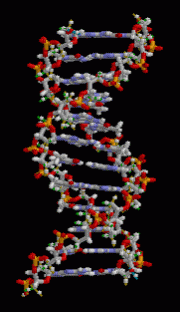
Almost everyone has at least once in their lifetime wondered, "When will I die?" and while astrologers and tarot card readers may placate you with unscientific methods to calculate your lifespan, scientists have now invented a 'biological clock' that can help predict the life expectancy of humans.
Researchers at the University of Edinburgh, working with scientists in the US and Australia, discovered that by simply analysing a person's DNA it is possible to calculate how long they will live.
For the study published in the journal Genome Biology, the scientists calculated individuals' biological clock by comparing the person's actual age with the age shown by the chemical changes in their DNA, known as methylation. It is understood that people whose biological age was greater than their true age are more likely to die sooner than those, whose actual and biological ages were the same.
In the four distinct studies conducted by the researchers, lives of almost 5,000 older people were tracked for up to 14 years. Each of their biological age was measured from a blood sample and there whereabouts and how-abouts were followed up throughout the study.
The scientists found that the link between having a faster-running biological clock and early death held true even after accounting for deaths following factors such as smoking, diabetes and cardiovascular disease.
"The same results in four studies indicated a link between the biological clock and deaths from all causes," Dr Riccardo Marioni of the Centre for Cognitive Ageing and Cognitive Epidemiology, University of Edinburgh, was quoted as saying by the University's news site.
And although the results calculated with the "DNA clock" or the biological clock, are still a bit unsettling and it is still unclear what lifestyle or genetic factors influence a person's biological age, the study has expanded the human knowledge regarding longevity and paved for further research in the matter.
"This new research increases our understanding of longevity and healthy ageing. It is exciting as it has identified a novel indicator of ageing, which improves the prediction of lifespan over and above the contribution of factors such as smoking, diabetes, and cardiovascular disease," said Professor Ian Deary Centre for Cognitive Ageing and Cognitive Epidemiology, University of Edinburgh.

















